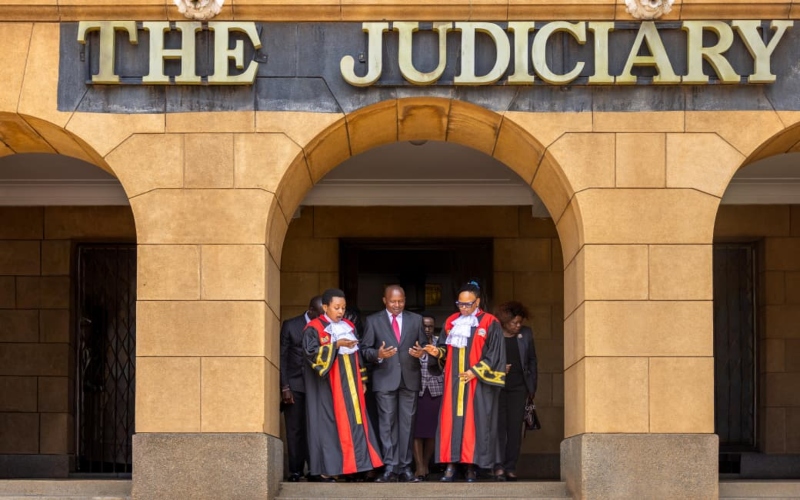Auditor General calls for penalties on officers who ignore audit recommendations

Auditor General Nancy Gathungu expressed concerns that her office’s audit recommendations are often not implemented, with many issues recurring in subsequent years due to the absence of enforcement mechanisms and administrative sanctions.
Parliament has been asked to amend the Public Finance Management Act to introduce penalties for accounting officers who fail to implement audit and Parliamentary recommendations, a move aimed at curbing fiscal indiscipline.
Auditor General Nancy Gathungu expressed concerns that her office’s audit recommendations are often not implemented, with many issues recurring in subsequent years due to the absence of enforcement mechanisms and administrative sanctions.
More To Read
- Auditor General Nancy Gathungu warns of pension losses as government delays remittances
- Revenue gaps, budget misalignments hurting service delivery, warns Auditor General
- Governance Committee orders mandatory audit attendance for university heads
- Auditor General warns Kenya Railways’ Sh569 billion loan default could burden taxpayers
- Audit uncovers Sh13 billion irregularities in Ketraco wayleave payments
- 20 firms fined Sh2.2 billion for failing to remit unclaimed financial assets
“Lack of requisite sanctions has led to fiscal indiscipline, including misallocations, wastage of resources and lack of value for money in implementation of projects, theft and corruption,” she said.
Gathungu made the remarks during her presentation to the National Assembly’s Budget and Appropriations Committee, chaired by Samuel Atandi (Alego Usonga), on the status of budget implementation for the first quarter of the current financial year and for the previous year. She noted that the lack of sanctions has contributed to some accounting officers failing to adequately account for public resources.
The Auditor General highlighted that the gap between projected and actual revenues for both national and county governments poses a challenge to implementing the 2024/25 budget, warning that the deficits affect service delivery and result in the accumulation of pending bills.
She said the 56.5 per cent absorption of the development budget by county governments in the last financial year was due to unrealistic budget targets and delayed procurement processes.
Other obstacles identified included delays and shortfalls in exchequer funding, misalignment between budgets and cash plans, budget reductions under Supplementary 1 Estimates, and episodes of IFMIS system downtime during the 2024/25 budget implementation.
Gathungu recommended measures to strengthen fiscal discipline, including realistic revenue forecasting, transparent budget execution, limitation of public debt and strict enforcement of audit and Parliamentary recommendations.
This is not the first time the Auditor General has raised concerns over her recommendations being ignored. The Office plays a critical role in exposing wastage and abuse of public resources. Through audits and investigations, it scrutinises government spending, including at the county level, and highlights irregular payments, stalled projects and other mismanagement.
For instance, a special audit covering April 1, 2021, to June 30, 2022, revealed that the government lost Sh34 billion in 15 months related to the August 9, 2022, general election and the petroleum pump prices stabilisation scandal. This included Sh554.72 million overpaid to 11 Oil Marketing Companies (OMCs), equivalent to about Sh75.6 million lost per day during the period, at a time the country was struggling to raise revenue to meet budgetary obligations, including funding the education sector.
Gathungu warned that delays by Parliament in discussing and acting on financial audit reports “imply that the public is denied the benefits that could accrue from implementing the recommendations.”
“There is no value for money from the resources applied in undertaking the audits,” she added.
She also criticised instances where parliamentary audit committees reopen audit matters while reviewing reports, effectively acting as auditors themselves. This, she said, has allowed unscrupulous accounting officers to evade accountability, with some committees even negotiating with officers to secure favourable audit recommendations.
Top Stories Today













































